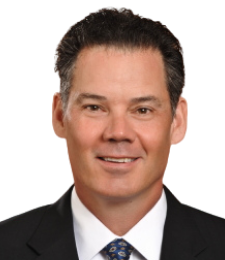I’m thrilled to announce that Bedard Law Group is the new sponsor for the Compliance Digest. Bedard Law Group, P.C. – Compliance Support – Defense Litigation – Nationwide Complaint Management – Turnkey Speech Analytics. And Our New BLG360 Program – Your Low Monthly Retainer Compliance Solution. Visit www.bedardlawgroup.com, email John H. Bedard, Jr., or call (678) 253-1871.

Every week, AccountsRecovery.net brings you the most important news in the industry. But, with compliance-related articles, context is king. That’s why the brightest and most knowledgable compliance experts are sought to offer their perspectives and insights into the most important news of the day. Read on to hear what the experts have to say this week.
Judge Dismisses FDCPA Case Over Allegedly Rude & Harassing Interactions for Lack of Standing
A District Court judge in Illinois has granted a defendant’s motion to dismiss, albeit giving the plaintiff an opportunity to amend her complaint, in a Fair Debt Collection Practices Act case because she lacked standing to sue, ruling that the behavior of the defendant’s representatives alleged in the complaint did not reach the level of a concrete injury. More details here.
WHAT THIS MEANS, FROM CAREN ENLOE OF SMITH DEBNAM: While the Eleventh Circuit and Hunstein may be stealing the standing headlines, people shouldn’t forget that the Seventh Circuit has led the charge in narrowing the gate to the federal courthouse in FDCPA cases. Since 2020, the Seventh Circuit has issued no less than fourteen decisions as to Article III standing in the FDCPA realm and, despite a dissenting opinion in Pierre v. Midland Credit Management questioning whether the Circuit has taken it a bit too far, it continues to charge forward. This opinion from the Northern District of Illinois is interesting from a couple of perspectives. First, the court considers and recaps at length transcripts of the calls at issue. While it is not unusual for courts to consider documents outside of the pleadings if they are referenced in the complaint, it is noteworthy that the court was willing to consider transcripts of the calls, rather than the original recordings. Secondly, the opinion once again confirms that in the Seventh Circuit emotional distress, anxiety, aggravation and frustration are not sufficient to establish concrete harm. As has been mentioned by many, the use of Article III standing to clear federal dockets may appear to be an industry victory on the surface, it comes with its drawbacks as the industry can expect these suits to increase in state courts.
THE COMPLIANCE DIGEST IS SPONSORED BY:

Judge Denies MTD in FDCPA Case Over Not Removing Dispute Notation
A District Court judge in California has denied a defendant’s motion to dismiss, ruling that a plaintiff’s third amended complaint which accused the defendant of failing to notify the credit reporting agencies that he was no longer disputing his debt constitutes a communication “in connection with the collection of any debt.” More details here.
WHAT THIS MEANS, FROM COOPER WALKER OF MALONE FROST MARTIN: Despite being in the industry for so long now, I still find myself shocked at the number of times some judges will give a plaintiff a “get out of jail free” card. This particular Plaintiff lost not one, but two Motions to Dismiss. And, even after the second, the judge gave Plaintiff leave to amend once more. Then, to add insult to injury, this Plaintiff is allowed to skate by with a very questionable claim. We’ve all heard of claims involving a debtor suing because a debt was not properly marked as disputed, but this is a case where the Plaintiff was suing because he wanted the debt to not be reported as disputed. Talk about a lawyer’s claim. This is a tough, tough situation. It’s easy to feel
Appeals Court Rules Emotional Distress, Wasting Time Enough for Plaintiff to Have Standing in FDCPA Suit
The Court of Appeals for the Eleventh Circuit has overturned a lower court’s dismissal of a Fair Debt Collection Practices Act case, ruling that the plaintiff’s claim of having suffered emotional distress and wasting time were sufficient for the plaintiff to have standing to sue, and have remanded the case back to the District Court for further proceedings. More details here.
WHAT THIS MEANS, FROM BRENT YARBOROUGH OF MAURICE WUTSCHER: The Eleventh Circuit issued this unpublished, per curiam decision the day before releasing the opinion of the en banc panel in Hunstein. However, the standing analysis in this case was much different than the one in Hunstein. Because the plaintiff in this case alleged tangible injuries, the court did not need to compare an intangible injury with an analogous common-law tort. Instead, the court examined the alleged injuries (emotional distress, waste of time, and encumbrance on property) and held that they were sufficiently concrete to confer Article III standing.
Florida CFO Floats Bill Prohibiting Political Discrimination by Collectors
The Chief Financial Officer for the state of Florida wants the state legislature to enact a law that would revoke the licenses of debt collectors that are hired by the Internal Revenue Service and target Floridians for collections based on their political beliefs. More details here.
WHAT THIS MEANS, FROM DALE GOLDEN OF GOLDEN SCAZ GAGAIN: It’s obviously wrong to discriminate against any person based on political beliefs. But it seems odd to even suggest that a debt collection agency would “target” a individual or business because of politics. And in my more than two decades representing collection agencies, I’ve yet to find one that has any interest in a debtor’s political opinion, period. To quote Jerry Maguire: “Show me the money!” The proposal by Mr. Patronis (insert Harry Potter joke here) seems more like a political stunt than anything approaching serious legislation. But even if the proposed prohibition were added to the FCCPA, proving a violation would be exceeding difficult, especially when one considers the fact that agencies generally have no clue what political beliefs a debtor holds. And if an agency was hired to collect a debt from a political organization, that debt likely wouldn’t be “consumer” and therefore would not fall under the purview of the Florida “Consumer” Collection Practices Act. There is a “commercial” collection practice act in Florida, but it doesn’t appear that Mr. Patronis is seeking to add a similar provision to that statute.
Judge Grants MTD in FCRA, FDCPA, TCPA Case
A District Court judge in New York has granted a defendant’s motion to dismiss after it was sued for violating the Fair Credit Reporting Act, the Fair Debt Collection Practices Act, and the Telephone Consumer Protection Act for allegedly placing more than 200 calls to try and collect on a debt and falsely reporting incorrect information to the credit reporting agencies. More details here.
WHAT THIS MEANS, FROM DAVID KAMINSKI OF CARLSON & MESSER: This is a classic example of why it is good to fight certain cases where consumers represent themselves in Federal Court and have no clue what they are doing. Here, the plaintiff had no ability to even frame a proper cause of action under the FDCPA, the FCRA or the TCPA. Because the plaintiff could not state a proper claim under the law, the Judge dismissed the case on a motion to dismiss without having to delve into any facts.
This is the type of case that companies should consider fighting as opposed to settling so that consumers representing themselves with weak or completely untenable claims are not emboldened. If consumers believe all they have to do is file a frivolous lawsuit to garner a settlement, such settlements will perpetuate the filing of additional nonsense claims. We thoroughly understand that every company must weigh the cost of resolution vs. the cost of litigating a case. That is why every company should carefully consider litigating those cases that will potentially cause consumers representing themselves to reconsider the filing of frivolous federal claims on their own.
CFPB Announces Plans to Regulate BNPL Market
The Consumer Financial Protection Bureau yesterday announced plans to increase its oversight of the Buy Now, Pay Later industry, by issuing guidance or a rule that will more closely align the product with its credit card cousins, and by instituting supervisory examinations of BNPL providers. More details here.
WHAT THIS MEANS, FROM JOANN NEEDLEMAN OF CLARK HILL: The Consumer Financial Protection Bureau’s (CFPB) report on the Buy-Now Pay-Later (BNPL) market is an in-depth and detailed report that should be looked at critically not only for what its says but for what it does not say.
Here are some important facts: BNPL transactions are small (the average amount is $135.00), the repayment terms are interest-free (if paid on time) and 89% of loan repayments are made on a debit card. One would think that by these facts alone, especially that the repayments are interest-free, the CFPB would be more supportive of these types of credit products. However, it is clear from the report, that the CFPB intends to take the BNPL to task because of the growth of the industry (180 million loans with a dollar volume of $24.2 billion) and the ability of BNPLs to leverage consumer data.
Two items are noticeably missing from the CFPB’s BNPL report. The first is evidence of consumer dissatisfaction. In footnote 14, the CFPB references a June 17, 2022 report from the Federal Reserve Bank of Philadelphia, Buy Now Pay Later: Survey Adoption and Attitudes, but does not disclose the results of the survey in the report. Had the CFPB done so, it would have revealed that a 68.5% satisfaction rate by consumers for BNPL. While this is not quite the 81.1% satisfaction rate that consumers have with their credit cards, consumer experiences with BNPL are relatively new. Accordingly, the Federal Reserve report also notes the dissatisfaction rate for BNPL as less than 2% which is the same for credit card users. The Federal Reserve report also found that much of the satisfaction difference for BNPL consists of users who are ambivalent about their experience; 16.9 percent of BNPL users were “Neither Satisfied nor Dissatisfied” with their experience versus 6.4 percent or fewer of credit card users.
The second missing items is evidence of high consumer complaint rates. To be fair the CFPB does not designate BNPL specifically as a category for which consumers can select. However a search in the CFPB’s complaint data base under “buy now pay later” under all categories from January 1, 2019 through September 24, 2022 found a total of 18 complaints. Admittedly there are probably more but in the Bureau’s report they only identified a handful. Assuming, even 1000 complaints across all BNPL providers in the same time period, that is less than .0003% of all complaints in all categories received by the CFPB.
Charge-off rates for BNPL are slightly higher than charge off rates for credit cards (3.8% for BNPL as opposed to 2.18% for credit cards). This could be an indication that the ARM industry could see some opportunities for placements and possible debt sales in this space. The CFPB’s report noted the very thin margins many of these lenders are currently experiencing and will continue to experience with rising interest rates. Given the small balances, high volume and economies of scale will dictate how agencies and debt buyers will consider the value of such placements.
Finally, it remains to be seen how much jurisdiction the CFPB has over BNPLs. Since no interest is being charged Truth-in-Lending (TILA) would appear not to apply. Like medical services and other credit products that the CFPB clearly has no jurisdiction over, it appears then that the CFPB will do what it has already done in the past and look to see how these products are being collected and credit reported. As with the payday industry, there will be extensive opposition as the CFPB presses forward.
I’m thrilled to announce that Bedard Law Group is the new sponsor for the Compliance Digest. Bedard Law Group, P.C. – Compliance Support – Defense Litigation – Nationwide Complaint Management – Turnkey Speech Analytics. And Our New BLG360 Program – Your Low Monthly Retainer Compliance Solution. Visit www.bedardlawgroup.com, email John H. Bedard, Jr., or call (678) 253-1871.















